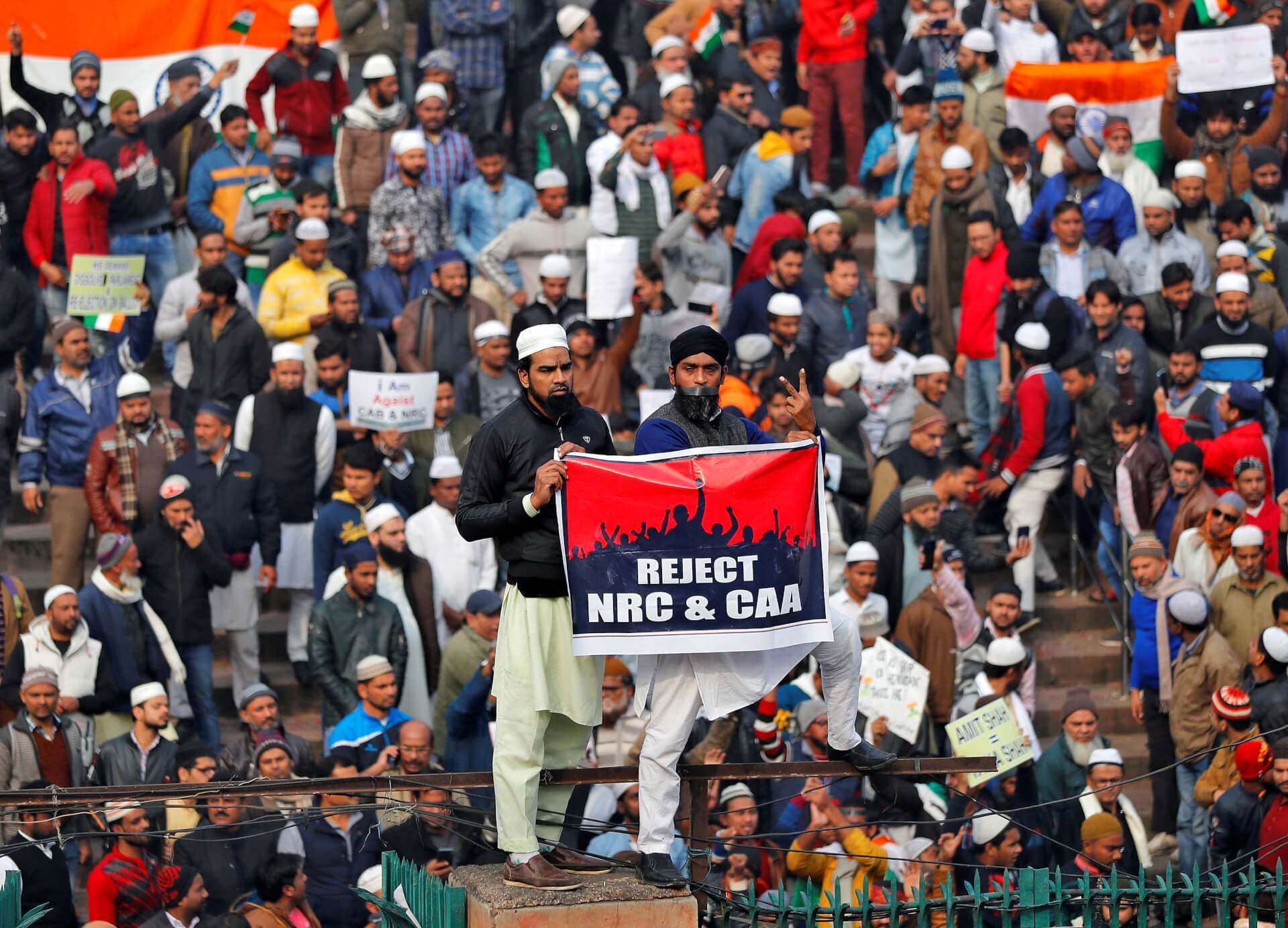Ahead of the upcoming Lok Sabha elections, the Ministry of Home Affairs (MHA) notified the Citizenship (Amendment) Rules, 2024 on Monday, to implement the controversial Citizenship Amendment Act (CAA) passed in 2019. Under the rules, foreign illegal migrants of certain religious communities coming from Afghanistan, Bangladesh, and Pakistan will become eligible for Indian citizenship.
Fast-Tracking Citizenship for Persecuted Minorities
Home Minister Amit Shah hailed the move, claiming that PM Narendra Modi has “delivered on another commitment” and “realised the promise of the makers of our constitution to the Hindus, Sikhs, Buddhists, Jains, Parsis and Christians living in those countries. The government has claimed the CAA is a “benign piece of legislation” that tackles the problem of religious persecution.
Indian citizenship is usually regulated by the Citizenship Act of 1955, which specifies five methods for acquiring it: by birth in India, by descent, through registration, by naturalisation, and by incorporation of territory into India. Any illegal migrant is prohibited from acquiring Indian citizenship and can be prosecuted, deported, or imprisoned.
In September 2015 and July 2016, migrants from the communities mentioned in the CAA were granted some exemptions. The latest rules exempt the members of the six communities from criminal cases under the Foreigners Act of 1946 and the Passport Act of 1920 and from being treated as illegal migrants.
The naturalisation requirement of residency in India for at least 11 years has also been relaxed to five years. However, the Act is not applicable to the Sixth Schedule tribal areas of Assam, Meghalaya, Mizoram and Tripura or the states with Inner Line Permit (ILP).
According to the MHA, atleast 31,000 “persecuted” minorities would benefit from the move. Matuas and Rajbanshis in West Bengal, and Hindu, Sikh, Jain and Parsi refugees in different parts of India welcomed the decision. Government sources said that the move will remove legal barriers to their rehabilitation and ensure a life of dignity to refugees who have suffered for decades.
What is the Citizenship Amendment Act?
The legislation was passed on 11 December 2019 with the intent of granting citizenship to undocumented people of Buddhist, Christian, Hindu, Jain, Parsi and Sikh communities from Pakistan, Bangladesh and Afghanistan. Despite this, the rules require the refugees to produce six types of documents and specify the date on which they entered India.
The Modi government today notified the Citizenship (Amendment) Rules, 2024.
— Amit Shah (Modi Ka Parivar) (@AmitShah) March 11, 2024
These rules will now enable minorities persecuted on religious grounds in Pakistan, Bangladesh and Afghanistan to acquire citizenship in our nation.
With this notification PM Shri @narendramodi Ji has…
The documents include birth certificates, tenancy records, identity papers, and any licence, school or educational certificate issued by a government authority in the three nations. They are also required to produce an eligibility certificate issued by a local reputed community institution confirming their religious affiliation.
The cut-off date for CAA is 31 December 2014. To prove this, the refugees are required to produce a copy of the following documents: passport, visa, slip issued by Census enumerators, PAN card, electricity bill, and insurance policy.
The Citizenship Amendment Act (CAA) is a discriminatory law that goes against the constitutional values of equality and international human rights law. The notification of the rules issued by the Ministry of Home Affairs will make this divisive law operational from today. #CAA
— Amnesty India (@AIIndia) March 11, 2024
Controversy
However, the move has drawn significant flak from various quarters who have regarded it as “anti-Muslim” for being discriminatory against Muslims. The exclusion of the persecuted Ahmadiyyas from Pakistan, Rohingya from Myanmar, Tamil Hindus from Sri Lanka, and Hazara communities from Afghanistan has been questioned. It is also said to violate Articles 13, 14, 15, 16 and 21, which guarantee equality by the Indian state.
When the law was passed in late 2019, protests erupted across the country. Eventually, violence emerged in Northeast Delhi and claimed over 100 lives. The notification of rules has once against stirred the situation, leading to demonstrations in different parts of India.
Moreover, the linkage of the protest to the National Register of Citizens (NRC) has also been questioned, as the Home Minister had declared an extension of the exercise to the entire country. NRC is a register of Indian citizens that aims to detect illegal immigrants. While it has no direct connection to CAA, the exercise aims to detect illegal migrants. The process has been questioned, however, for mainly targeting people from minorities who might not be able to furnish documents and eventually be declared non-citizens.
Misinformation is being spread by @AJEnglish regarding the Citizenship Amendment Act, calling the act 'anti-Muslim'#PIBFactCheck
— PIB Fact Check (@PIBFactCheck) March 12, 2024
▶️This claim is misleading!
1/2 pic.twitter.com/EkaV2sEr5X
Government Response
The government has, however, called these claims “misleading.” By “fact-checking” Al Jazeera English reports that called the move discriminatory, the government accused the channel of spreading misinformation. Defending its move, it said that CAA will not take away the citizenship of any Indian Citizen irrespective of religion and is not against any particular religion.

